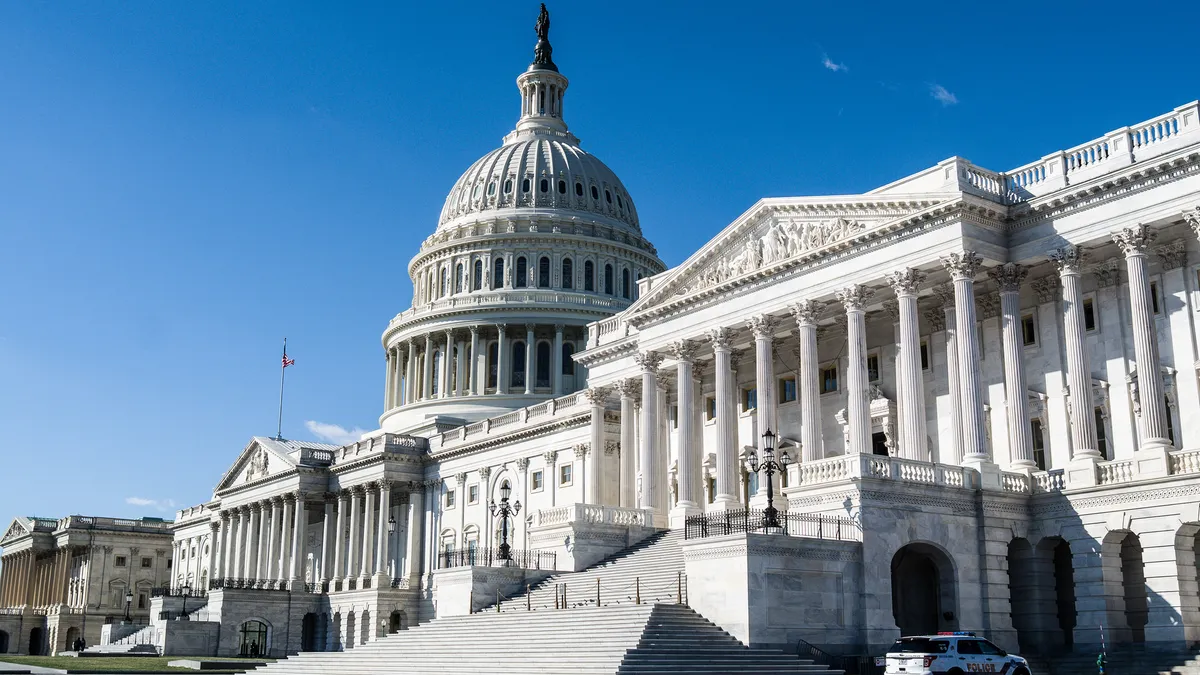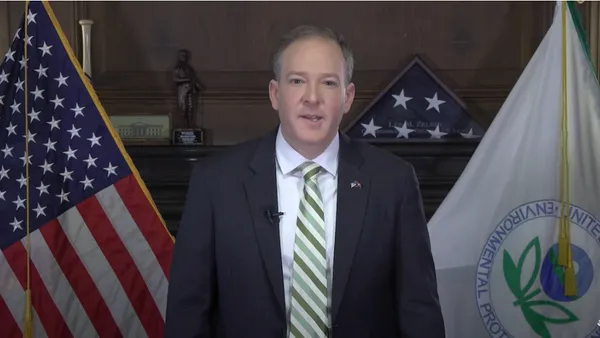Dive Brief:
- Lawmakers in both chambers of Congress — Reps. Suzan DelBene, D-WA, and Ben Ray Lujan, D-NM, and U.S. Sen. Maria Cantwell, D-WA — jointly re-introduced the Smart Cities and Communities Act to promote the advancement of smart cities. The bill was introduced in 2017 but stalled in committee.
- The bill aims to:
- Improve federal coordination of smart city programs, including reporting and showing their value
- Help local governments interested in implementing smart city technologies
- Build the workforce's technology skills to support smart cities
- Improve smart city technology's quality, performance and safety
- Foster international collaboration and trade of smart city technologies
- The bill would authorize $200 million for smart city investments over five years.
Dive Insight:
The smart city sector has matured significantly and rapidly since this legislation was introduced in 2017. Smart city efforts have gained momentum and support — including in Congress, which last spring launched the Congressional Smart Cities Caucus.
If passed, the bill would create better coordination of smart city projects across the country. The federal government already is exploring legislation for individual elements that make up a smart city, including electric vehicles (EVs), autonomous vehicles (AVs), artificial intelligence (AI), internet of things (IoT) devices, broadband access, transit, climate action and data privacy. The re-introduced legislation has the potential to create more cohesive oversight and to encourage a more holistic view of smart city progress and development.
Cities are taking holistic approaches to smart city development through the use of comprehensive, strategic plans. Philadelphia and Washington, DC have these plans, and Orlando, FL this month announced that it is seeking a consultant to create a master plan.
The legislation aims to foster more smart city collaboration, domestically and abroad. City employees and leaders frequently echo the refrain that collaboration helps with the sharing of best practices and scaling projects. Idea sharing is valuable for cities that have not yet entered the smart city space — or are just beginning — and want to learn the best, most efficient manner to launch smart city initiatives and become established. Leaders frequently tout regional collaboration because issues that a city faces often don't end at its borders.












